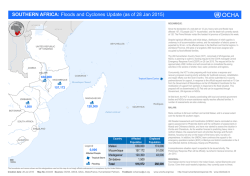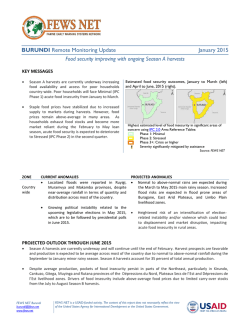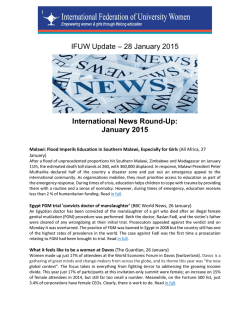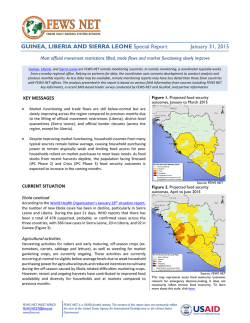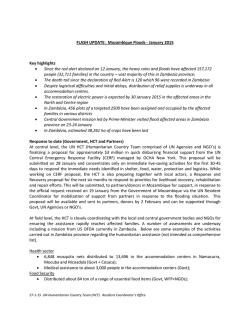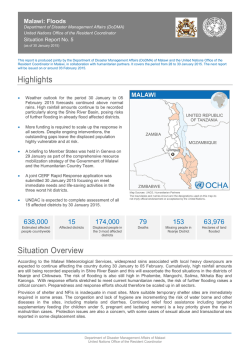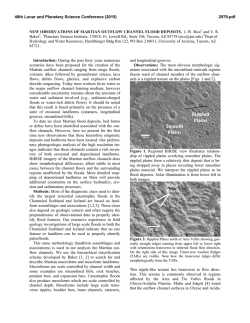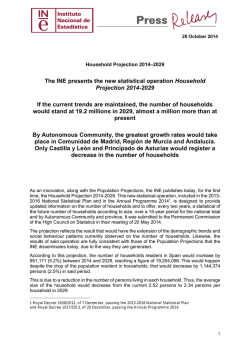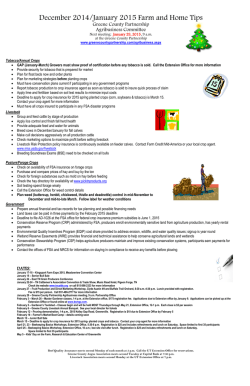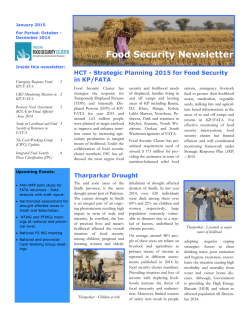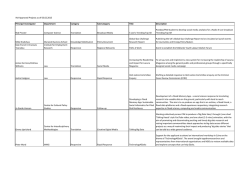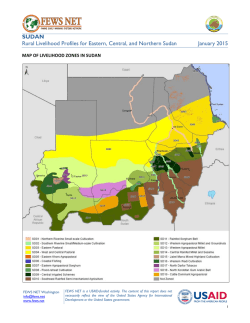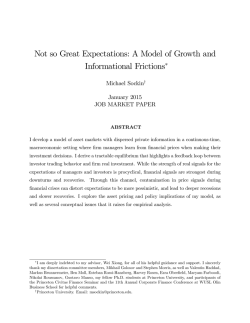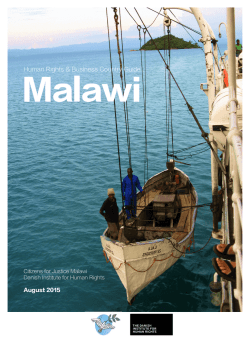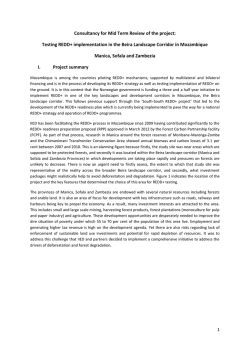
Download PDF (902.66 KB)
1/31/2015 Southern Africa Alert: Fri, 20150130 Published on Famine Early Warning Systems Network (http://www.fews.net) Southern Africa Alert Severe flooding damages crops; nearly 300,000 people displaced January 2015 Heavy midseason rainfall has caused extensive flooding across several areas in the region, affecting approximately 930,000 people, including some 300,000 who were displaced from their homes. Despite the current humanitarian response, the extent of the crop land inundated by these floods will likely result in total loss of production and significant food gaps, particularly for poor households, during the 2015/16 consumption year. Emergency lifesaving services including the provision of food, shelter, and safe water are needed for the affected households. After a late start to the southern Africa monsoon season, Mozambique, Malawi, and Madagascar have received aboveaverage rainfall since early January, with weekly accumulations well over 100 FIGURE 1. AREAS OF SOUTHERN millimeters. Water levels increased along the Shire, MALAWI AND NORTH/CENTRAL Licungo, Zambezi, and Mazoe Rivers, and along MOZAMBIQUE MOST AFFECTED BY tributaries, causing severe floods in central and RECENT FLOODING. northern Mozambique and southern and northern Source: Agricultural areas: 2009 GlobCover, flood affected areas derived Malawi. Additionally, on January 15th Tropical from Dartmouth Flood Observatory imagery Storm Chedza caused severe floods in central and northern Madagascar. Rainfall is ongoing in some areas, posing a risk of further flooding in the coming months. http://www.fews.net/print/southernafrica/alert/january20150 1/2 1/31/2015 Southern Africa Alert: Fri, 20150130 The flooding occurred during the peak lean season, TABLE 1. FLOODAFFECTED a time when most rural households in the affected POPULATIONS areas depend on market purchases for cereal. Source: OCHA, FEWS NET Given the damage to roads and food stocks, market access and market supplies have declined. While efforts are in place for the distribution of food assistance, access problems are impeding delivery. As a result of these critical shortages, households affected by the flooding in Malawi and Mozambique are currently experiencing Stressed (IPC Phase 2) acute food insecurity outcomes, and some of the hardest hit areas in southern Malawi are in Crisis (IPC Phase 3). Apart from the destruction of infrastructure such as roads and health facilities, the floods destroyed crops and livestock. Preliminary estimates indicate that 25,000 hectares (ha) of cropped land have been impacted in Malawi and 65,000 ha (~5 percent of the total planted area) in Zambézia Province, Mozambique. In Madagascar, about 9,900 ha of rice fields were flooded and an additional 7,900 ha of crops damaged. The floods are also likely to reduce demand for and access to wage labor opportunities. With fewer crops and less income, affected households will be less able to produce food or buy non food essentials. As a result, although market supplies are likely to improve, Stressed (IPC Phase 2) outcomes are expected to continue among these poor households in Mozambique, and Stressed (IPC Phase 2) and Crisis (IPC Phase 3) outcomes are likely in Malawi, even once flood waters recede. Households in Malawi are expected to be worse off because some floodaffected populations were already facing acute food insecurity due to poor harvests in 2014 and because the ability to replant crops is more limited than in Mozambique. In the short term, more resources are needed to ensure that immediate livesaving activities related to shelter, food, water, protection, and logistics can be implemented, especially in Malawi, where only 21 percent of required funds have been secured. In addition, the damage to crops, while localized, will mean that the worst affected households are likely to require assistance throughout much of the 2015/16 consumption year. The size of the population requiring this longer term assistance may grow depending on whether additional cyclones or flooding occur in the coming months. Region Contact Information: Email: [email protected] Source URL: http://www.fews.net/southernafrica/alert/january20150 FEWS NET is a USAIDfunded activity. The content of this report does not necessarily reflect the view of the United States Agency for International Development or the United States Government. http://www.fews.net/print/southernafrica/alert/january20150 2/2
© Copyright 2026
